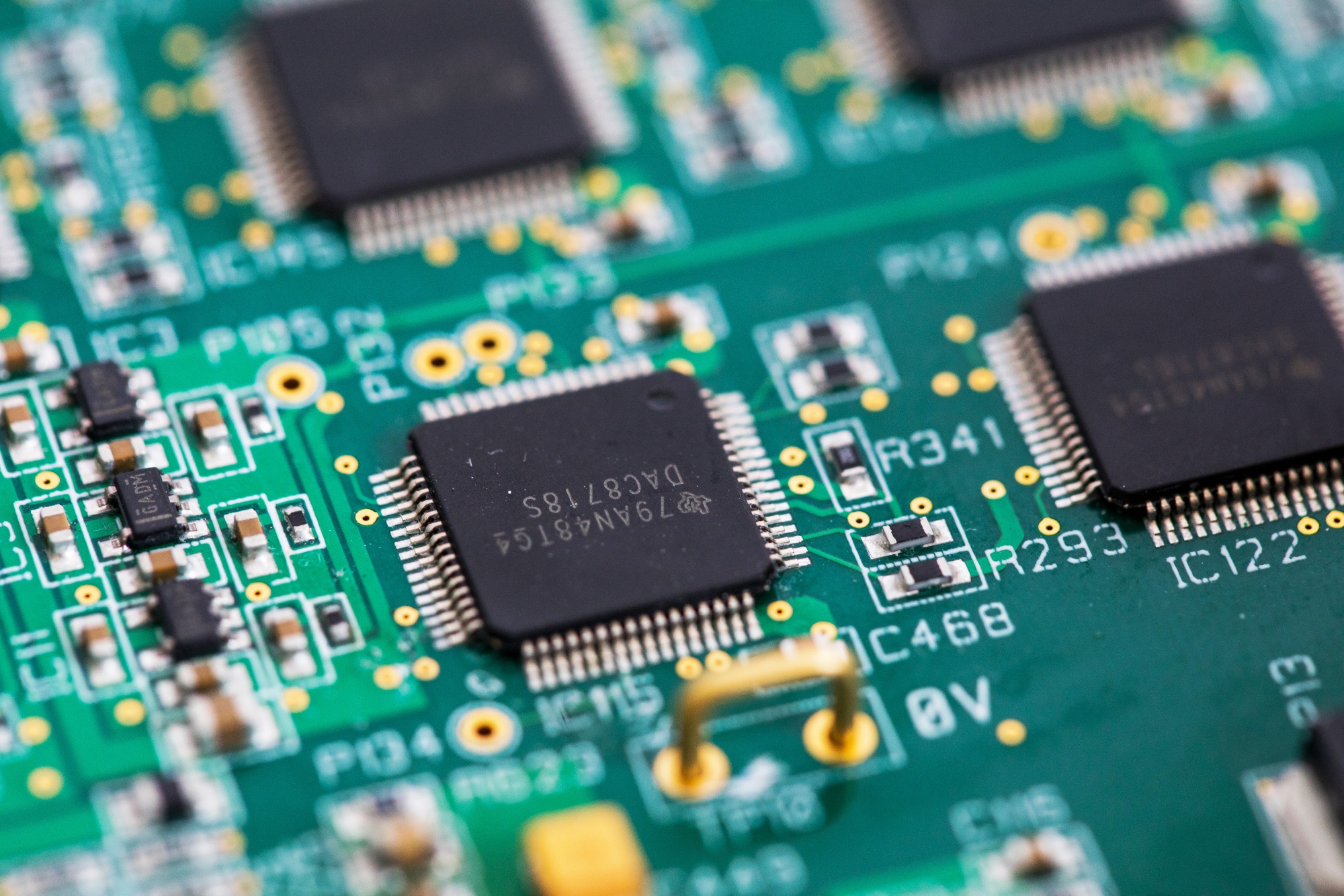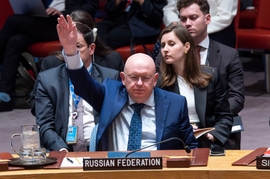Russia reportedly imported advanced semiconductor chips worth over $1 billion from leading US and European companies, defying the stringent sanctions imposed by the United States and the European Union.
According to a report issued by Bloomberg on Thursday, the chips included products from industry giants such as Intel Corp, Advanced Micro Devices, Analog Devices Inc., Infineon Technologies AG, STMicroelectronics NV, and NXP Semiconductors NV.
Despite claims by the companies that they strictly adhere to sanctions and ceased operations in Russia following its full-scale invasion of Ukraine, investigations suggest that the technology entered Russia through alternative channels. These channels primarily involved intermediary countries like China and the United Arab Emirates.
There is no evidence indicating that the companies directly violated sanctions by exporting technology to Russia. The intricate supply chains involved obscure the origin of the imported goods. The US and the European Union have been actively collaborating to impede these channels, with a particular focus on dual-use and advanced goods essential to the production of Russian weaponry used in military activities in Ukraine.
After Russia launched what it called a “special military operation” in Ukraine in February 2022, imports of essential IT sector items, including deliveries from major Western IT companies and international firms, dried up. Western sanctions specifically targeted foreign-made equipment essential for microchip production, posing a serious risk.
The strategic importance of semiconductors in modern warfare, powering critical equipment such as drones, radios, missiles, and armored vehicles, has prompted Western allies to intensify efforts to enforce sanctions. Reports of Moscow increasingly sourcing advanced Western technologies through intermediary countries like China have fueled concerns among Western nations, prompting calls for broader sanctions and secondary measures targeting entities supporting Russia’s military endeavors.
In response to these challenges, the European Union adopted a new package of sanctions in June 2023, featuring an anti-circumvention tool to restrict the sale, supply, transfer, or export of specified sanctioned goods and technology to certain third countries acting as intermediaries for Russia. The package also expanded the list of companies directly supporting Russia’s military, adding 87 new entities from countries including China, the United Arab Emirates, and Armenia, while restricting the export of 15 technological items found in Russian military equipment used in Ukraine.
The EU is reportedly gearing up to impose an additional package of sanctions on Russia as the second anniversary of the conflict draws near, with a particular focus on extending the asset freeze and travel ban list for individuals and businesses.







 Azerbaijan and Armenia started the process of demarcation of their border on Tuesday, with the installation of the first border markers based on ge...
Azerbaijan and Armenia started the process of demarcation of their border on Tuesday, with the installation of the first border markers based on ge...
 President Aliyev emphasized the critical role of the North-South Transport Corridor in fostering transport cooperation between Azerbaijan and Russi...
President Aliyev emphasized the critical role of the North-South Transport Corridor in fostering transport cooperation between Azerbaijan and Russi...
 Iran and Pakistan have signed eight cooperation documents in various fields, and agreed to strengthen ties to fight terrorism in the region.
Iran and Pakistan have signed eight cooperation documents in various fields, and agreed to strengthen ties to fight terrorism in the region.
 As the conflict between Ukraine and Russia escalates, the strategic importance of Kharkiv, Ukraine's second-largest city, has come sharply into focus.
As the conflict between Ukraine and Russia escalates, the strategic importance of Kharkiv, Ukraine's second-largest city, has come sharply into focus.
 Iranian President Ebrahim Raisi expressed Tehran’s readiness to participate in significant development projects in Sri Lanka during the inauguratio...
Iranian President Ebrahim Raisi expressed Tehran’s readiness to participate in significant development projects in Sri Lanka during the inauguratio...



